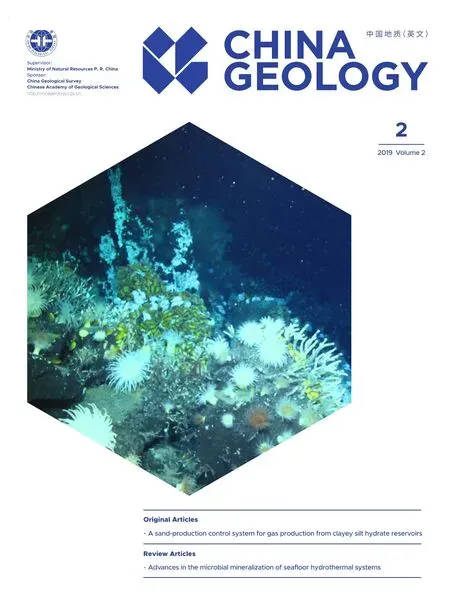The Key Laboratory of Coastal Wetland Biogeosciences
The Key Laboratory of Coastal Wetland Biogeosciences(KLCWB) was established in August 2012 and is incorporated into the Qingdao Institute of Marine Geology,China Geological Survey, Ministry of Natural Resources. The KLCWB focus on the frontiers of international coastal wetland biogeology science and technology development,especially the hot topics in biological geology, environmental geology and ecological resources.
1. The analytical facilities in KLCWB
There are more than 40 kinds of analytical facilities in KLCWB, mainly including: gas chromatography-mass spectrometry (GC-MS), real-time fluorescence quantitative PCR (RT-PCR), soil respiration apparatus, isotope ratio mass spectrometer (IRMS), laser aablation inductively coupled plasma mass spectrometry (LA-ICPMS), etc.
2. The major research fields and main achievements
The major research fields include: (1) Geological evolution of costal wetlands; (2) Costal wetland hydrological process, seawater intrusion, ecological environmental effects and governance; (3) Biogeochemistry and the carbon cycle;(4) Ecological remote sensing survey, invasive monitoring of alien species and countermeasures; (5) Wetland restoration and wetland service capacity development; (6) Response of coastal wetland ecosystem to climate change and corresponding strategies.
Over the past ten years, the KLCWB has hosted 25 research projects, including 5 China Geological Survey Projects, 2 Special Scientific Research Projects of the Ministry of Land and Resources ( Ministry of Natural Resources), 1 Key Research & Development Program of the Ministry of Science and Technology, 2 Support Programs of the Ministry of Science and Technology, 15 National Natural Science Foundation Projects. Based on these research programs, the laboratory has published 255 papers (including 119 SCI articles) and 2 scientific works, and has been authorized for 19 patents. The laboratory was awarded with many awards or glories, including Science and Technology Award by the Ministry of Natural Resources, Science and Technology Award by the China Geological Survey, and Advanced Organization of International Collaboration by the Ministry of Land and Resources. The fruitful outcomes of the laboratory are listed as below:
(i) Global coastal wetland research on warming networks has been constructed: Coastal wetland monitoring networks have been simultaneously constructed in China, United States and other European countries, to make long-term online monitoring of wetlands at different latitudes. Based on big data analysis, the scientists of the KLCWB have improved the theory of both aquatic system evolution and carbon cycling in coastal wetlands. In 2018, the international cooperation made a breakthrough and the group members were awarded the“National Government Friendship Award”.
(ii) Costal wetlands protection and restoration has been supported: The series of the National Key Wetlands Habitats Evolution Maps were accomplished, which has provided scientific supports for wetland protection and spatial planning.In the global common gardens ofPhragmiteslocated in Jinan and Panjin, salt-tolerant and disease-resistant genotypes were selected from the 260 different genotypes of plantedPhragmitesand have then been successfully applied in wetlands restoration, creating enormous economic value.
(iii) Coastal wetland-ecology-geology investigation and evaluation have been promoted: The KLCWB has also established hydrosphere-pedosphere-atmosphere-biosphere ecological elements detection system, by (a) designing and constructing the geographic elevation monitoring system and aquatic primary productivity detection devices; and (b)innovatively proposing technology of greenhouse gas measurement, soil carbon sequestration assessment, and marine cone penetration test (CPT) in situ observation.
(iv) The KLCWB has tentatively established the theoretical system of eco-geology of coastal wetlands.

Fig. 1. The 9th Aoshan Forum (Effects of Climate Changes and Associated Environmental Drivers on Coastal Zone and Coastal Wetlands)organized by KLCWB in 2016.

Fig. 2. Field monitoring station of the Coastal-wetland Research on Warming Network (CROWN) constructed by KLCWB.
3. International exchanges and cooperation
The International Research Center has made full use of each individual chance of international cooperation to provide guest member positions for top scientists, aiming at enhancing long term cooperative relationship. Since the MOU (No. CH-02.0600) between China Geological Survey and United States Geological Survey, the institute has established high efficiency communication and cooperation mechanisms with United States Geological Survey and other research institutes.Dozens of distinguished scientists, such as Dr. Mathew Eric Andersen (Senior Research Scientist, USGS), Dr. Ken Krauss(Senior Research Scientist, USGS), Prof. Edward A Laws(Louisiana State University, USA), Prof. Hans Brix (Aarhus University, Denmark), visited the institute for academic communication and scientific collaboration. The cumulative visiting time of these famous experts has reached 160-200 days a year. The globalization has played important role in promoting the construction of the KLCWB and improving the world-leading level of coastal wetlands investigation of the institute. By now, the institute has co-cultivated 6 PhD and Master students, together with Louisiana State University(USA) and Aarhus University (Denmark). Prof. Edward A Laws was awarded the certificate of 2018 Chinese Government Friendship. The KLCWB has been leading the Scientific & Technological Innovation Key Projects between Chinese and American governments of the National Key R&D Program, which provide financial support for mutual academic visits and scientific collaboration.
4. Contact
Prof. Si-yuan Ye
The Key Laboratory of Coastal Wetland Biogeosciences(KLCWB)
Address: No.62 Fuzhounan Road, Shinan District,Qingdao 266071, P.R. China
E-mail: siyuanye@hotmail.com
Tel: +86-(532)-85755811
Website: www.coastalwetland.org
- China Geology的其它文章
- Introduction to Key Laboratory of Gas Hydrate, Ministry of Natural Resources
- The Report of China Mineral Resource Reserves, 2018
- The Report of China Mineral Resource Exploration, 2018
- First report of TSR origin minerals filled in anhydrite dissolved pores in southeastern Ordos Basin
- Discovery of Late Cretaceous-Paleocene faulted basins developed on the Yandang Low Uplift, East China Sea Shelf Basin
- Multiphase porphyry intrusions in the Sungun copper deposit, NW Iran: Evidence from SHRIMP zircon U-Pb dating

